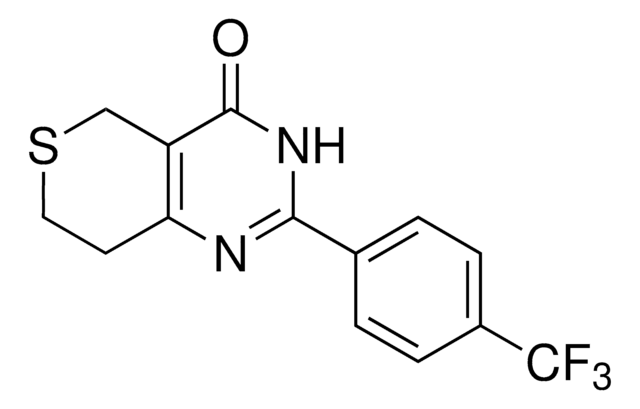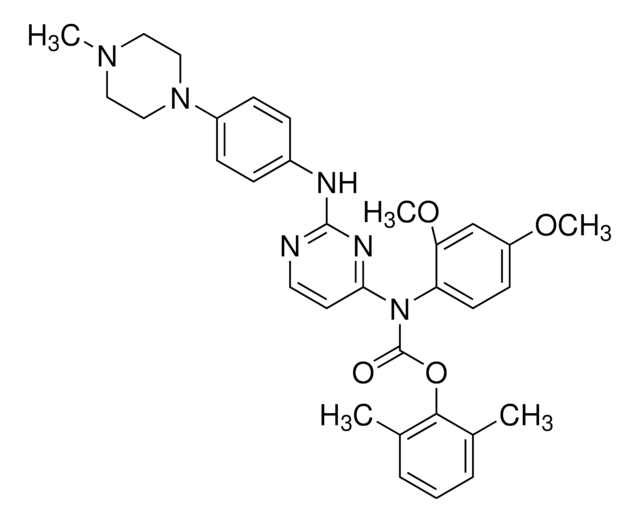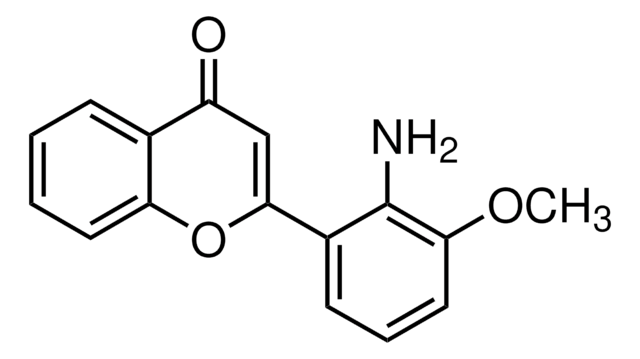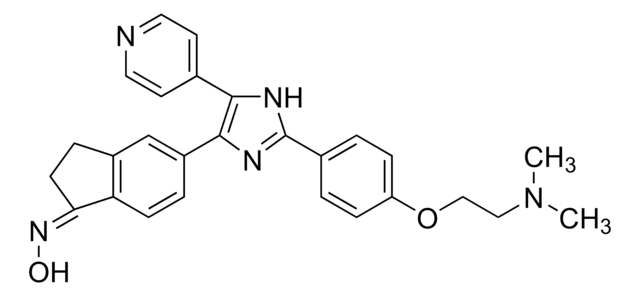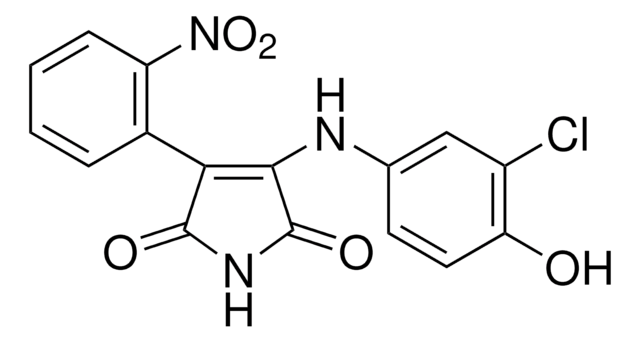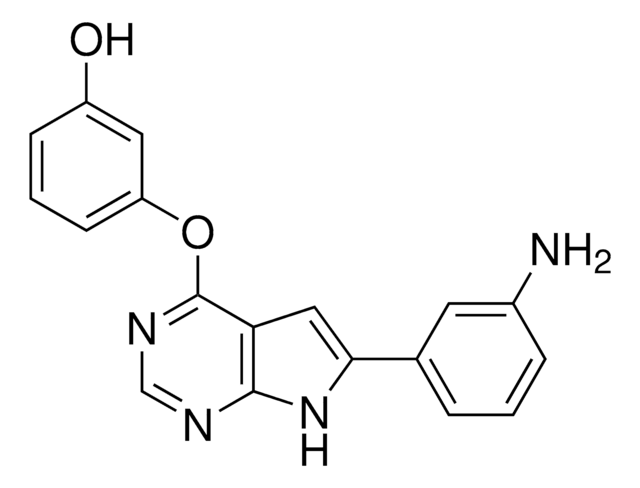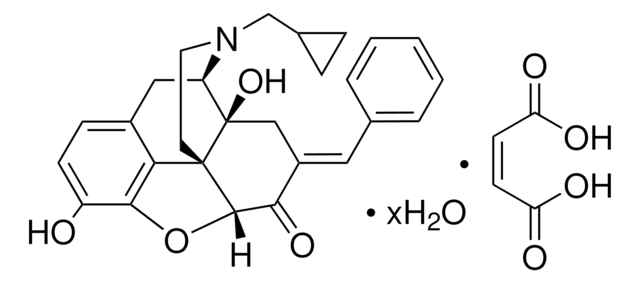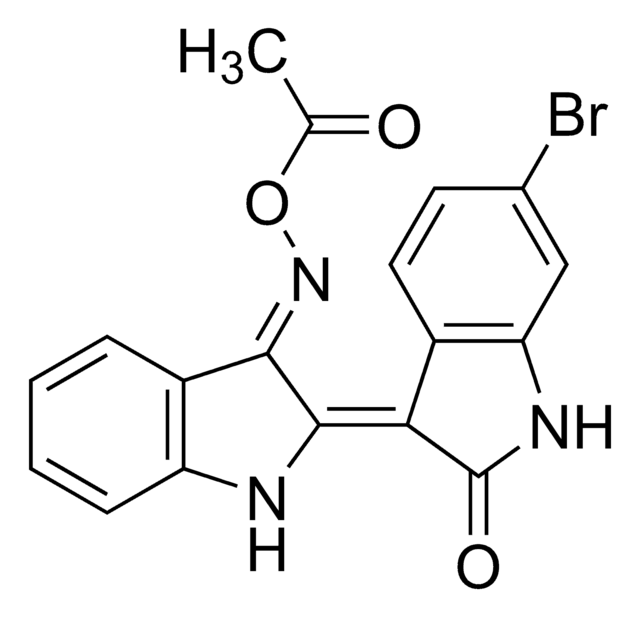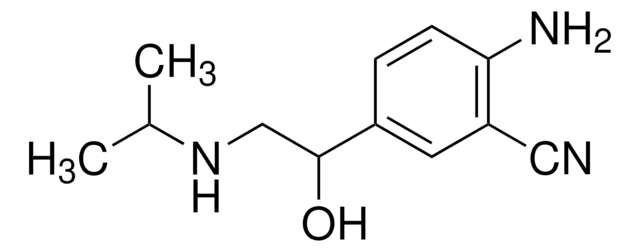S3442
SB 216763
>98% (HPLC)
Sinónimos:
3-(2,4-Dichlorophenyl)-4-(1-methyl-1H-indol-3-yl)-1H-pyrrole-2,5-dione
About This Item
Productos recomendados
Quality Level
assay
>98% (HPLC)
color
orange
solubility
DMSO: soluble 20 mg/mL
H2O: insoluble
originator
GlaxoSmithKline
storage temp.
−20°C
SMILES string
Cn1cc(C2=C(C(=O)NC2=O)c3ccc(Cl)cc3Cl)c4ccccc14
InChI
1S/C19H12Cl2N2O2/c1-23-9-13(11-4-2-3-5-15(11)23)17-16(18(24)22-19(17)25)12-7-6-10(20)8-14(12)21/h2-9H,1H3,(H,22,24,25)
InChI key
JCSGFHVFHSKIJH-UHFFFAOYSA-N
Gene Information
human ... GSK3A(2931) , GSK3B(2932)
Application
Biochem/physiol Actions
Features and Benefits
Legal Information
Storage Class
11 - Combustible Solids
wgk_germany
WGK 3
flash_point_f
Not applicable
flash_point_c
Not applicable
ppe
dust mask type N95 (US), Eyeshields, Gloves
Certificados de análisis (COA)
Busque Certificados de análisis (COA) introduciendo el número de lote del producto. Los números de lote se encuentran en la etiqueta del producto después de las palabras «Lot» o «Batch»
¿Ya tiene este producto?
Encuentre la documentación para los productos que ha comprado recientemente en la Biblioteca de documentos.
Los clientes también vieron
Contenido relacionado
Discover Bioactive Small Molecules for Kinase Phosphatase Biology
Nuestro equipo de científicos tiene experiencia en todas las áreas de investigación: Ciencias de la vida, Ciencia de los materiales, Síntesis química, Cromatografía, Analítica y muchas otras.
Póngase en contacto con el Servicio técnico